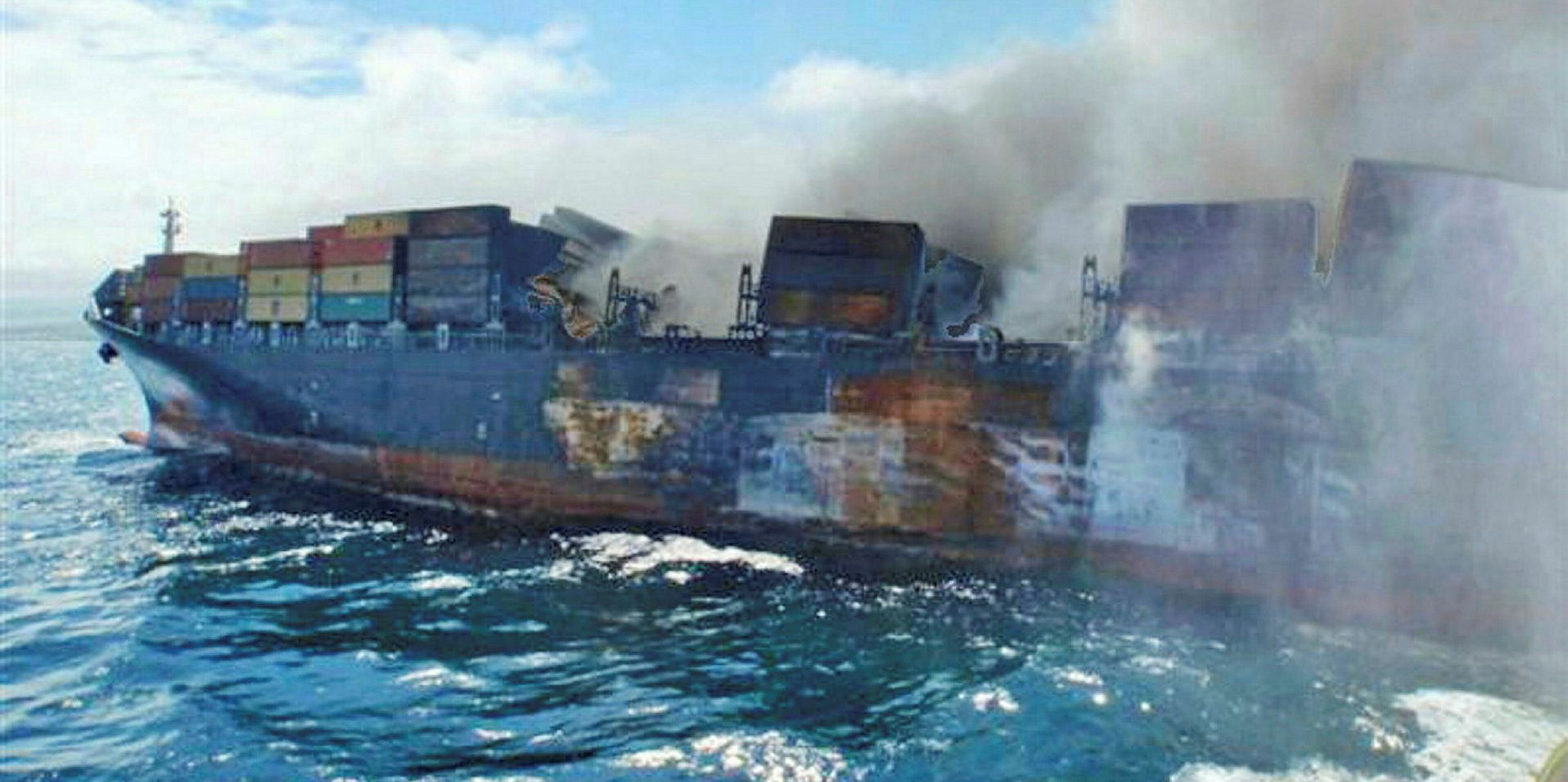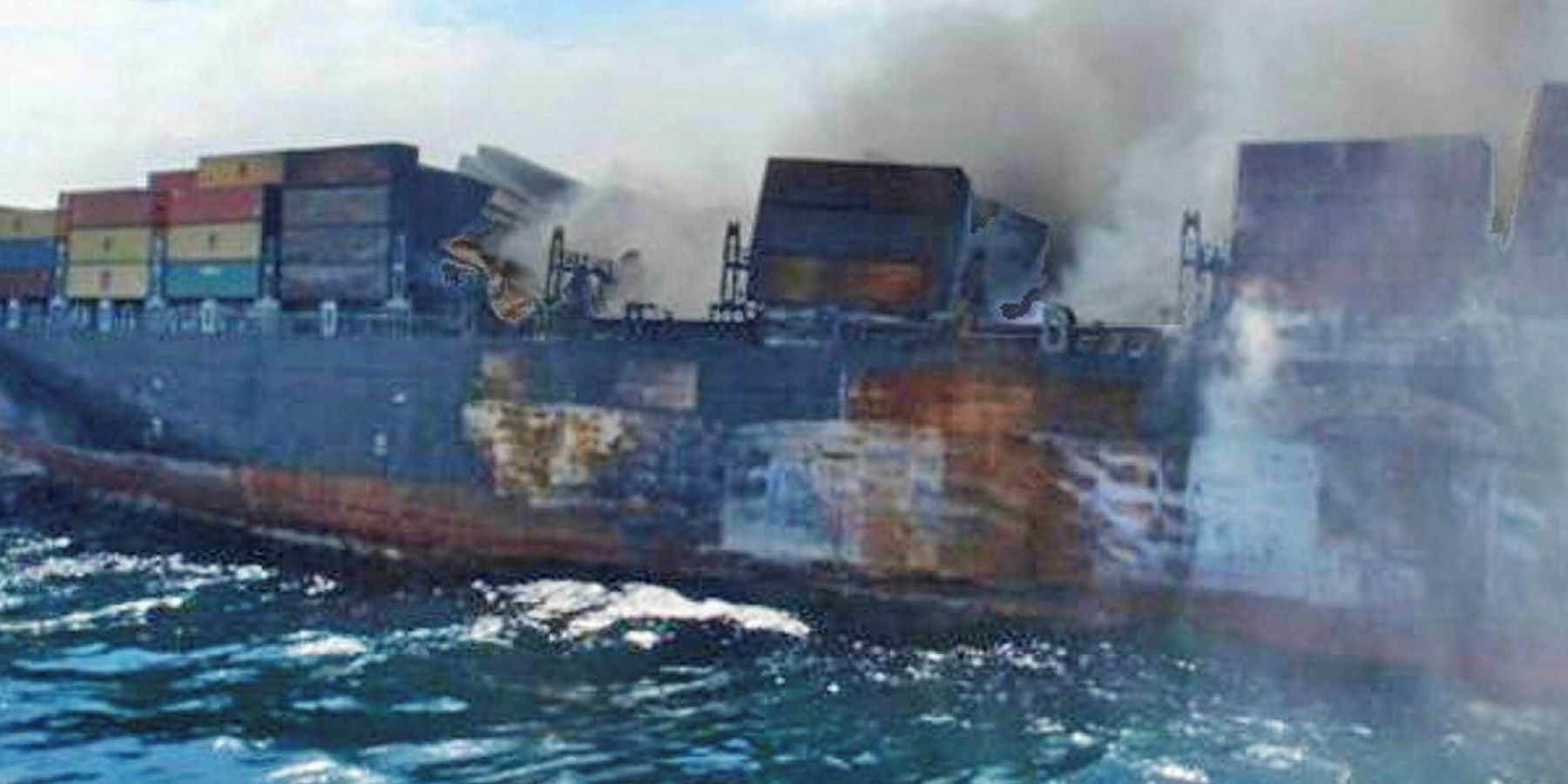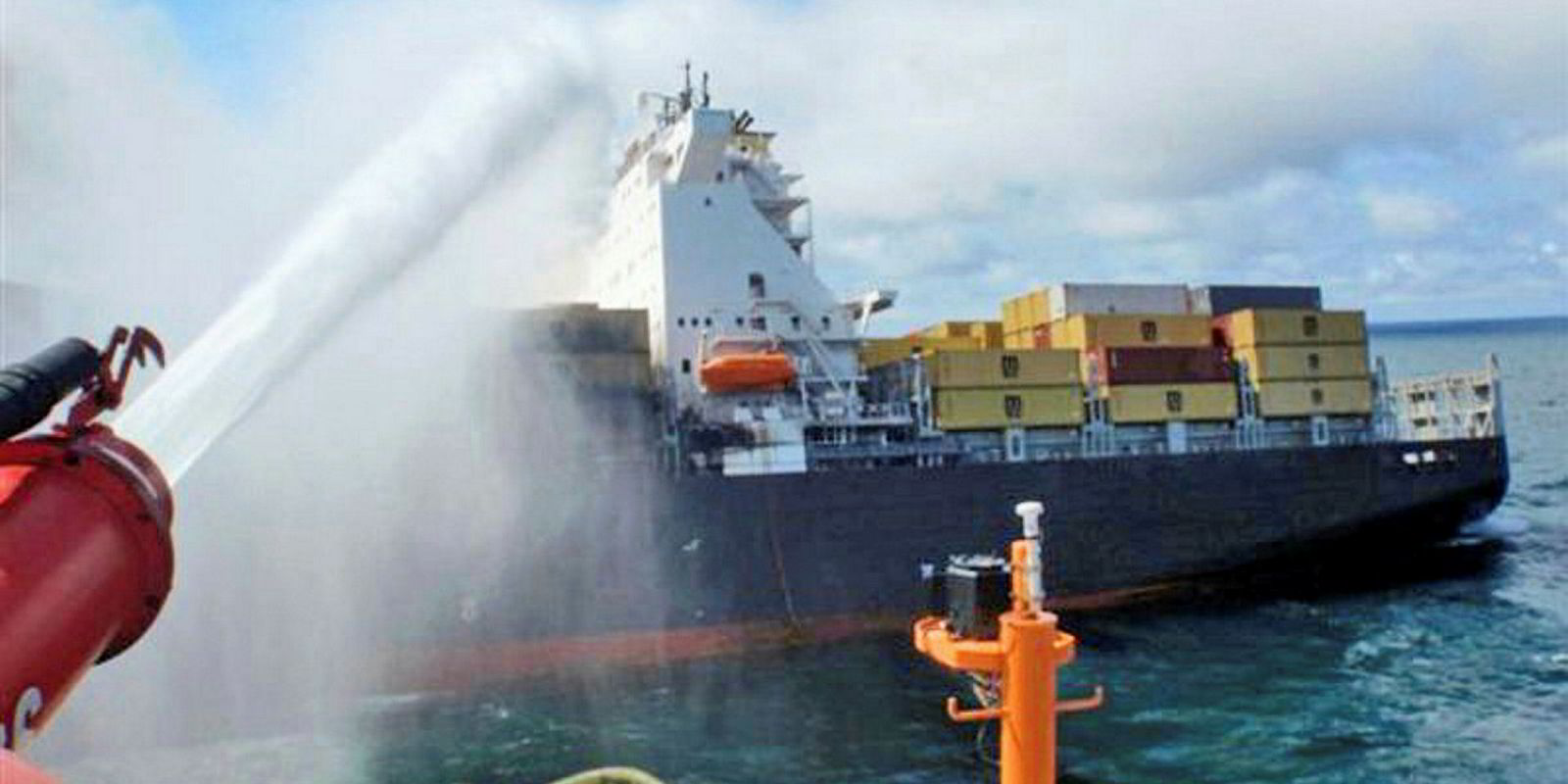The European Court of Justice (ECJ) has ruled in German owner Conti's favour on one legal point in a row about the shipping of waste on the burned-out MSC Flaminia.
Law firm Reed Smith said the ECJ decided that debris from the fire, which killed three crew, is excluded from international shipment of waste rules.
But the company also noted that the rare decision "leaves important questions unanswered".
Conti was appealing in a case against the region of Lower Saxony, Germany, that was referred by a German court to the ECJ.
Article 3 of the EU Waste Shipments Regulation 2006 (EU WSR) requires prior written notification and consent before shipments of certain types of waste can be made to another country.
"Obtaining such consent can be costly and take several months," Reed Smith said.
"The case was a significant opportunity for clarity in this area. Unfortunately, in many ways it was an opportunity missed."
MSC Flaminia was towed into German waters after the blaze broke out in 2012.
The waste was not offloaded from the ship, but, before it could sail on to Romania, the owner was required to carry out a notification and consent procedure in relation to scrap metal and fire-extinguishing water mixed with sludge and cargo residues.
Damages sought
Conti was challenging an earlier decision in order to try to recover damages for the costs and delay this caused.
"What is vitally important to a true understanding of the ECJ’s judgment is to appreciate that, technically speaking, the local court only referred to the ECJ the question of whether prior notification and consent should have been obtained by the master of the vessel for the carriage of the fire-debris ‘waste’ from the place on the high seas where the fire damage occurred, to Germany," Reed Smith said.
The ECJ did not rule on whether consent was needed for the onwards shipment from Germany to Romania.
The court said that where waste arises on board a ship as a result of an accident, this is sudden and unforeseeable, meaning it would be impossible or very difficult for the person responsible to become acquainted quickly enough with the information required to comply with the EU WSR requirements.
"Sensible" ruling
Reed Smith called this reasoning "pragmatic and sensible".
But it added: "It would have been less easy to apply this rationale alone to the onwards shipment from Germany to Romania, but the ECJ was not asked to, and so did not, rule on that issue."
The law firm also highlighted the fact that the ECJ advocate-general stated that, had the question of the onwards shipment of the waste from Germany to Romania needed to be ruled upon, he would have decided that the strict wording of the exclusion – which states that the exclusion applies until the waste is offloaded – would also have meant that prior informed consent was not needed to that further shipment under the EU WSR.
Reed Smith said this opinion was given "even though, clearly, most of the rationale for the ECJ’s narrower ruling would not apply to the second leg of the waste’s journey (the emergency was by then over, there was more time to become acquainted with and follow applicable rules, etc)."
But the company said the advocate-general also appeared to accept that the exclusion was in this respect out of step with the Basel Convention on the Control of Transboundary Movements of Hazardous Wastes and Their Disposal which the EU WSR seeks to implement.
A US federal judge ruled last year that Norway's Stolt-Nielsen and chemicals manufacturer Deltech bear full legal responsibility for the fatal fire that has resulted in an estimated $280m liability.
Three other parties in the bitter legal fight have been cleared of any liability.
These include the charterer, Swiss liner giant MSC, Conti, and technical manager NSB Niederelbe.







